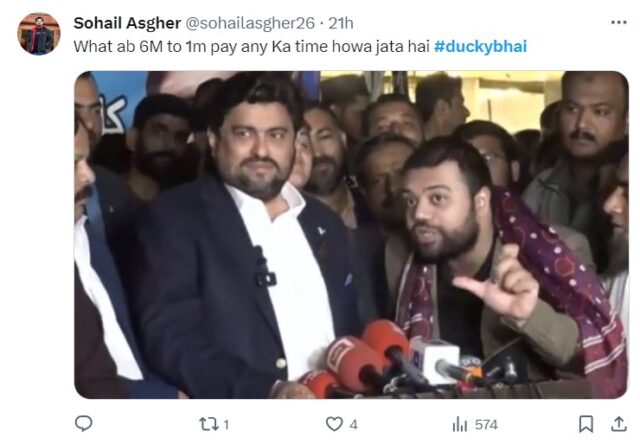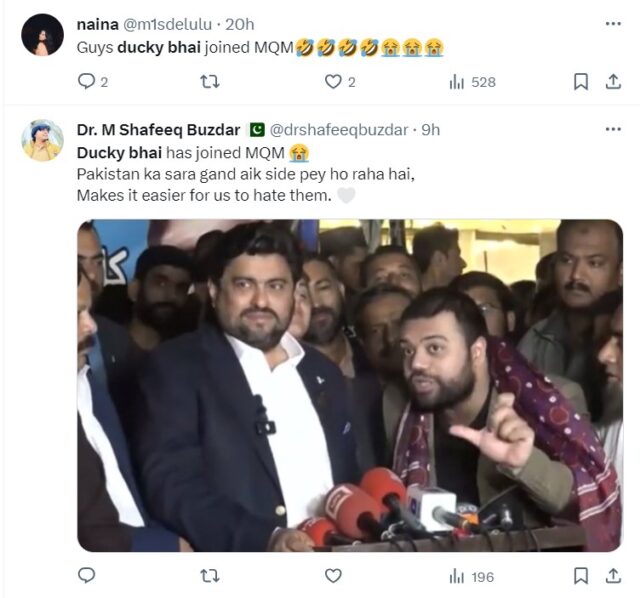In a dramatic shift from his online persona, popular YouTuber Ducky Bhai, known as Saad Ur Rehman, has plunged into the realm of politics by aligning himself with the Muttahida Qaumi Movement (MQM).
The surprising announcement unfolded during an MQM rally, where Ducky Bhai was introduced by party members, signaling a strategic move to leverage his substantial online following for political purposes.
While MQM supporters cheered the decision, the public response has been mixed, with many expressing shock and some voicing disappointment over Ducky Bhai’s political pivot.
During the rally, MQM representatives expressed eagerness to harness Ducky Bhai’s massive platform, boasting over 6 million YouTube subscribers, for their political agenda.
However, Ducky Bhai attempted to assuage his fans’ concerns by clarifying that his primary YouTube channel is dedicated to entertainment content. He hinted at the possibility of creating a separate channel for political discourse to avoid blending the two genres.
Ducky Bhai Likely To Join Politics In MQM . pic.twitter.com/bGXe9QBvKZ
— Samiullah Azeem🌻 (@msamiaz927) January 25, 2024
Fans’ Reaction
Despite his clarification, disillusioned fans took to social media to criticize Ducky Bhai’s move, accusing him of succumbing to greed and abandoning his original principles.
One comment encapsulated the sentiment, suggesting that Ducky Bhai’s pursuit of power has tarnished his once-critical stance: “He’s getting greedy; he’s now the same thing he criticizes. Money has changed him.”
Another comment lamented the perceived transition from monetary gain to a hunger for political influence: “This is how greed works. You get money and then you want more and more. Eventually, you stop wanting money and want power (kursi).”
Ducky Bhai’s unexpected foray into politics has divided his fanbase, sparking debates over his motivations and concerns about the potential transformation of his content.
As speculation mounts, the repercussions of Ducky Bhai’s political affiliation on his online persona and engagement remain uncertain, leaving both supporters and critics eagerly awaiting the unfolding narrative.





